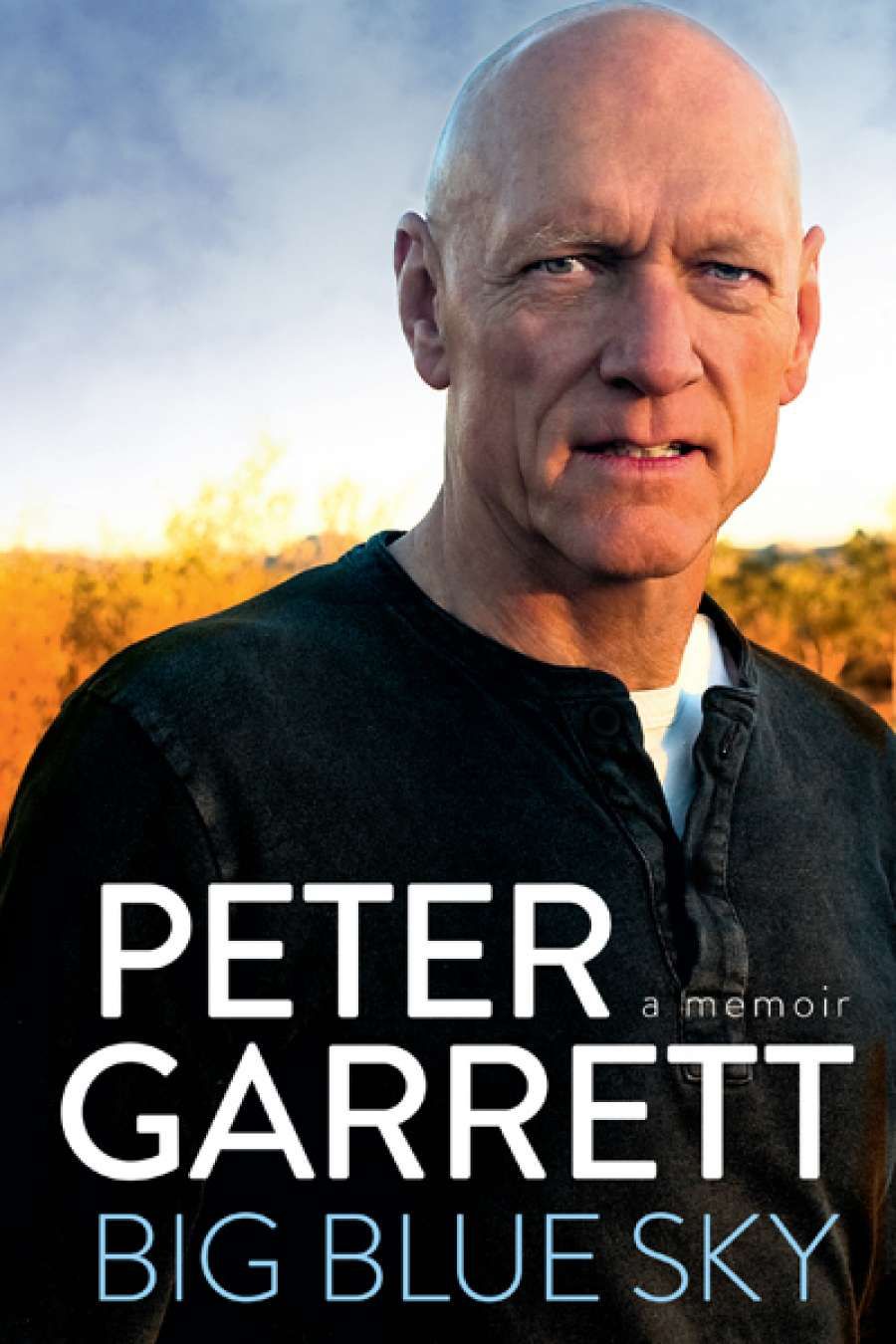
- Free Article: No
- Contents Category: Biography
- Custom Article Title: Dennis Altman reviews 'Big Blue Sky' by Peter Garrett
- Review Article: Yes
- Online Only: No
- Book 1 Title: Big Blue Sky
- Book 1 Subtitle: A Memoir
- Book 1 Biblio: Allen & Unwin, $49.99 hb, 456 pp, 9781760110413
Big Blue Sky, Peter Garrett's memoirs, is a salutary reminder about the Rudd–Gillard governments' significant policy achievements. Admittedly, there are times when Garrett reminds us of Jim Hacker in Yes Minister, particularly when he quotes one senior official as saying, 'We'll do our best ... but as you know Minister, the average length of time of someone in this office is less than eighteen months.' Garrett, more than most former ministers, is willing to express his ongoing frustration at dealing with entrenched bureaucracies.
Garrett had a distinguished career as an activist before Mark Latham persuaded him to run for the seat of Kingsford Smith in Sydney. Indeed there are at least three Peter Garretts: musician, activist, politician. Their stories are worth recording.
I am not qualified to judge his contribution to Australian music, but it is clearly significant; most critics would list Midnight Oil as one of the top ten Australian bands of the past forty years. The early part of Big Blue Sky deals at length with the development of both the Oils and the larger rock scene; raucous, blokey, fuelled by drugs and alcohol (Garrett was largely abstemious) and yearning, sometimes successfully, for global recognition. The music scene was flourishing, as is clear from Garrett's roll-call of his contemporaries: 'Chisel, Mentals, Flowers [later Icehouse], Oils, Wasted Daze, Lipstick Killers ...' It is an impressive list, but, as too often in this book, the author does little more than itemise them. Even the members of his own band ('more like brothers than best mates') fail to come to life.
'There are at least three Peter Garretts: musician, activist, politician. Their stories are worth recording'
The Oils stood out for their consistent interest in politics, their work with indigenous Australians, their support for environmental issues, and, most notably, the moment at the closing ceremony of the 2000 Sydney Olympics when they unzipped their costumes to reveal overalls emblazoned with the word Sorry.
Garrett's first serious foray into political activism came in 1979 with a benefit concert against commercial whaling. Three decades later he would lead Australia's push against Japanese whaling; this makes for some of the most revealing moments in the book. While the Labor caucus was revolting against Kevin Rudd's leadership, Garrett was overseas lobbying effectively for support at the International Whaling Commission.
Garrett was a founding member of the Nuclear Disarmament Party and in 1984 came close to winning a Senate seat for them in New South Wales. Later he was president of the Australian Conservation Society and a key figure in environmental organisations before his election to federal parliament. Given these interests and affiliations, why did Garrett not run for the Greens? His answer is a concise explanation as to why some activists still see Labor as the best chance for a progressive future: 'I was too much of an economic dry and too allergic to utopianism to side with the Australian Greens ... Sanctimony sucks.' The book is remarkable for its lack of acknowledgment of the Greens. There are several passing references to Bob Brown, and a nod to Adam Bandt, but no one would know, from reading this book, that these two politicians were crucial players in many of the wins of the Gillard government. Those expecting much political gossip from this memoir will be disappointed.
 Peter Garrett (photograph by Mark Rogers)
Peter Garrett (photograph by Mark Rogers)
Garrett is tight-lipped about his colleagues, with the exception of Kevin Rudd, whom he loathed with an increasing passion. (He refused to stay in the ministry after Gillard was toppled in 2013.) One senses that Garrett was often uncomfortable in Cabinet meetings and disillusioned by Labor. Only two of his ministerial colleagues are mentioned in the acknowledgments.
During his nine years in parliament, Garrett – unlike most politicians – retained his links to music and the broader social movements that had brought him to Canberra. Indeed, the closest equivalent might be Bob Brown himself, and there are some similarities between Big Blue Sky and Brown's memoir, Optimism (which I reviewed for ABR in November 2014). They share a love of the Australian landscape and a passion to preserve it; both shy men, they seem motivated by a desire to become political leaders.
More so than Optimism, Garrett's memoir follow a linear chronological path; like Brown's book, the writing fails to do justice to the man. Garrett deserves a major biography, written by a David Marr or Richard Flanagan, someone who could explore his place in the Australian cultural and political landscape but also grapple with his flaws. Too often Big Blue Sky, in its preoccupation with recording everything, fails to engage with the larger story. When it does, Garrett is prone to clichés. There is at least one major error: there was no referendum to amend the constitution to allow bank nationalisation. The writing is rarely more than serviceable, and at times clumsy.
Big Blue Sky would have benefited from a firmer edit, and eighty fewer pages. What emerges is a portrait of a man whose abilities and ambition created a career with few parallels in our political history. There is a slight melancholy at the end of the book, as Garrett comes to terms with becoming, in his term, 'an elder'. Garrett tries to sum up the ideas that have driven him. As he writes: 'I've always believed that humans are born to sing, to make music, to dance, to tell stories, to paint pictures in order to celebrate life and to make sense of death ... music and song are triggers that unlock memory and the shared experiences that make us human.'


Comments powered by CComment